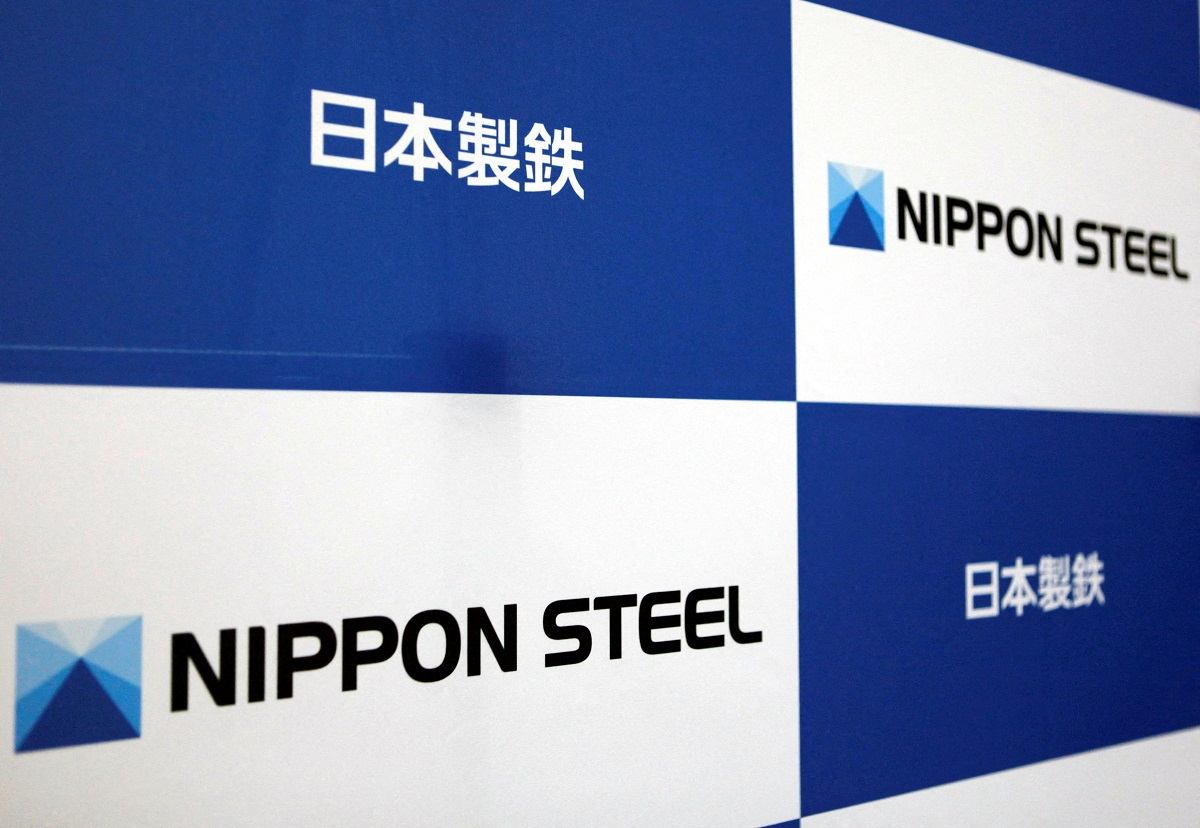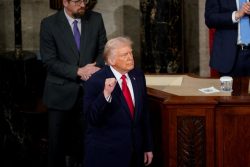Exclusive: Nippon Steel Alleges Undue White House Influence on Doomed Deal Review, Letter Says

Nippon Steel logos are displayed at the company’s headquarters in Tokyo in March 2019.
11:06 JST, December 21, 2024
WASHINGTON (Reuters) — Nippon Steel alleges the White House had “impermissible undue influence” over a national security review of its $14.9 billion bid for U.S. Steel and threatened legal action if the deal is blocked.
The accusation was made in a Dec. 17 letter, signed by counsel for Nippon Steel and U.S. Steel and seen by Reuters, to the Committee on Foreign Investment in the United States (CFIUS).
CFIUS, which reviews foreign acquisitions for national security risks, has a Monday deadline to approve the deal, extend the review, or recommend that President Joe Biden scuttle it. However, an expected government shutdown would pause the clock, CFIUS lawyers said.
Last weekend, CFIUS set the stage for Biden, who has long opposed the tie-up, to block it in a 29-page letter by raising allegedly unresolved national security risks, Reuters exclusively reported.
In its response, Nippon Steel and U.S. Steel rebut CFIUS’s national security arguments and allege that Biden improperly influenced the review’s outcome before CFIUS could reach its conclusions.
Specifically, their Dec. 17 letter claims Biden may have weighed in on the deal to please United Steelworkers (USW) President David McCall, who opposes the tie-up, and endorsed Biden for President soon after he announced his opposition to the merger.
Biden has opposed the deal because he believes that U.S. Steel should be American-owned and operated.
“We are gravely concerned that the December 14 Letter reflects impermissible influence in the CFIUS process from the White House, at the behest of third parties who oppose the transaction and seek to weaken the Parties, namely, Cleveland-Cliffs…, led by CEO Lourenco Goncalves, and Mr. McCall,” Nippon and U.S. Steel’s latest response to CFIUS reads.
Cleveland-Cliffs was a suitor for U.S. Steel and also opposes the deal with Nippon.
White House spokesperson Saloni Sharma said the allegation “is not true.” She did not specifically address if Biden would block the deal, adding, “The President has been clear that he will continue to see what the CFIUS process yields.”
“We look forward to finalizing the transaction and remain committed to working with all relevant parties to do so,” U.S. Steel said in a statement.
Top Articles in News Services
-

Survey Shows False Election Info Perceived as True
-

Hong Kong Ex-Publisher Jimmy Lai’s Sentence Raises International Outcry as China Defends It
-

Japan’s Nikkei Stock Average Touches 58,000 as Yen, Jgbs Rally on Election Fallout (UPDATE 1)
-

Japan’s Nikkei Stock Average Falls as US-Iran Tensions Unsettle Investors (UPDATE 1)
-

Trump Names Former Federal Reserve Governor Warsh as the Next Fed Chair, Replacing Powell
JN ACCESS RANKING
-

Producer Behind Pop Group XG Arrested for Cocaine Possession
-

Japan PM Takaichi’s Cabinet Resigns en Masse
-

Man Infected with Measles Reportedly Dined at Restaurant in Tokyo Station
-

Israeli Ambassador to Japan Speaks about Japan’s Role in the Reconstruction of Gaza
-

Videos Plagiarized, Reposted with False Subtitles Claiming ‘Ryukyu Belongs to China’; Anti-China False Information Also Posted in Japan
























